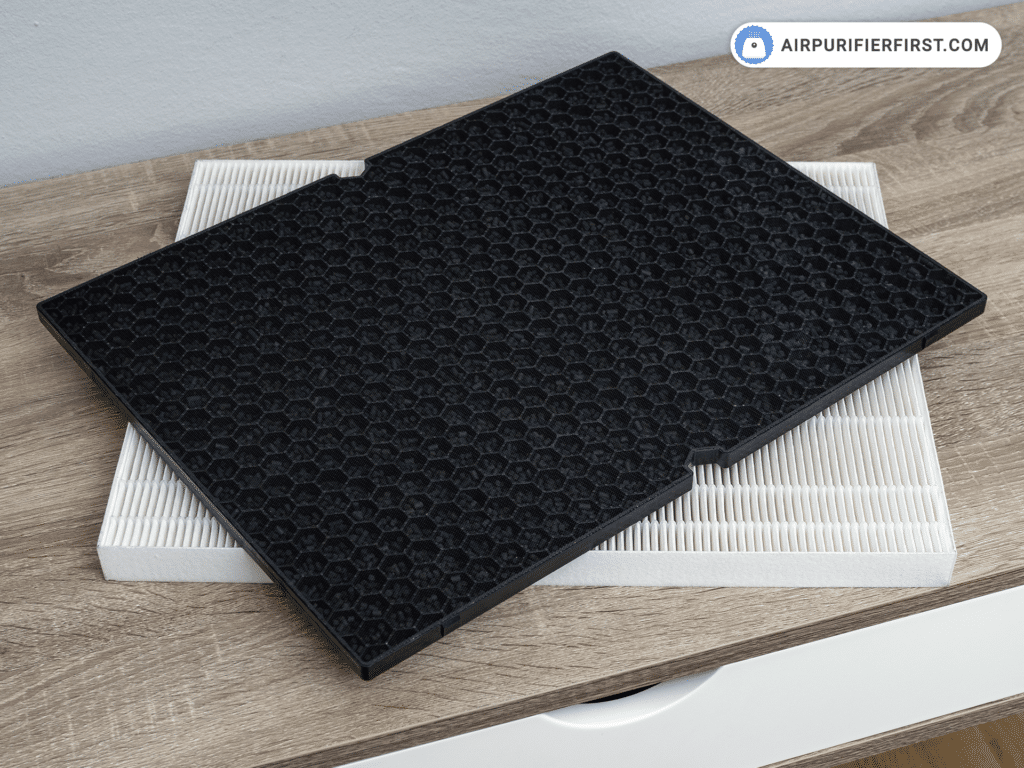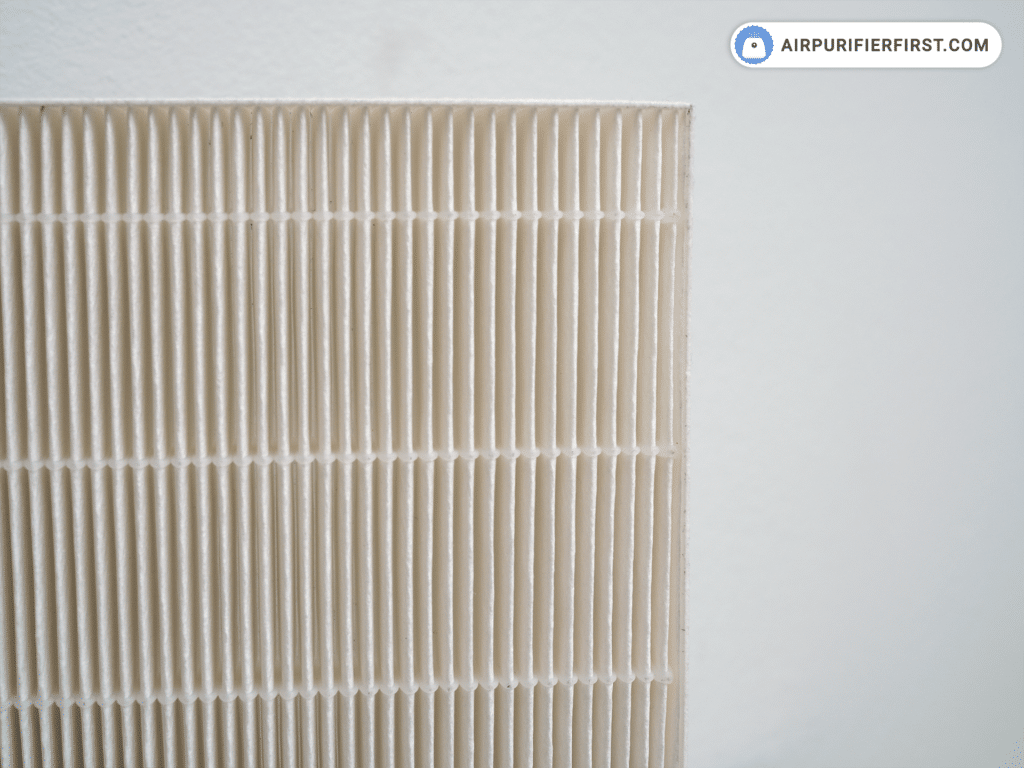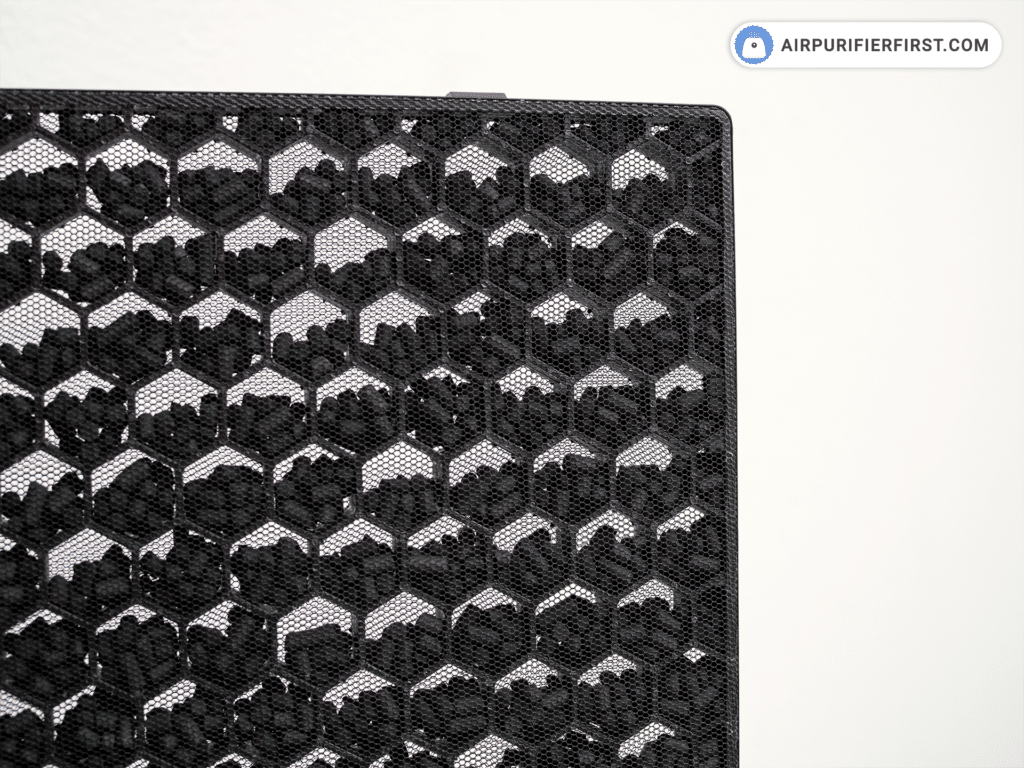Understanding how an air purifier works is a huge step to better knowledge about the air surrounding you. These are usually simple devices without many fancy options, mainly focused on filtration technology. Most commonly, they use HEPA and activated carbon filters. The better the filtration technology, the more reliable and efficient the air purifier.

Table of Contents
- What Do HEPA Filters Do?
- What Do Activated Carbon Filters Do?
- FAQ on HEPA Vs Carbon Filters
- What is the main difference between HEPA and Carbon filters?
- Can I use HEPA and carbon filters together in an air purifier?
- How long do HEPA and carbon filters last?
- Which filter should I choose if I have allergy problems?
- Do HEPA filters neutralize odors and VOCs?
- Can HEPA and carbon filters be washed and reused?
- Final Conclusion
But does your air purifier really need both HEPA and activated carbon filters? What is their job in an air purifier, and is there any difference between them?
In this article, I’ll answer all these questions by providing examples, sharing my personal experience, comparing results from performance tests, and discussing studies on when it’s best to use HEPA and activated carbon filters.
In short, both filter types are essential for air purifiers because they remove different pollutants from the air. HEPA filters effectively capture particulate matter, while activated carbon filters efficiently adsorb VOCs and particles, even those much smaller than 0.3 microns.
What Do HEPA Filters Do?
HEPA stands for High-Efficiency Particulate Air filter. It’s the most important filtration stage in most air purifiers due to its ability to capture small particles such as dust, pollen, mold spores, and viruses.

There are many variants of HEPA filters, such as HEPA-Type, HEPA, True HEPA, HEPASilent, and similar. However, most of the air purifiers I have tested here on the Air Purifiers First use a True HEPA filter. This is the most represented one because of its high efficiency.
A true HEPA filter removes 99.97% of airborne particles as small as 0.3 microns. This ensures capturing particles such as dust, pollen, mold spores, viruses, and similar, drastically improving your home’s air quality.
Interesting fact.
Nine out of ten air purifiers we have tested use a True HEPA filter.
The high efficiency and huge popularity make HEPA filters often seen inside vacuums, cars, or in HVAC systems. What is also characteristic of HEPA filters are affordable price and long durability.
However, HEPA filters have limited ability to filter gases, odors, volatile organic compounds (VOCs), and smoke. This is where activated carbon filters dominate because of their adsorption capabilities.
What Do Activated Carbon Filters Do?
Activated carbon filters are pretty different from HEPA filters. These filters adsorb particles from the air instead of capturing them.

According to the University of Readings research, an activated carbon filter effectively adsorbs formaldehyde, benzene, ammonia, etc. This research proves this filter’s efficiency in fighting different odors and gases. HEPA filters, on the other hand, are noneffective against these pollutants.
Did you know?
An average carbon filter can adsorb particles smaller than 0.3 microns.
Carbon filters are characterized by not being as affordable as HEPA filters and also by frequent replacement. These filters are made of organic raw materials that significantly increase their price and cause many air purifier manufacturers to use less carbon in their filters.
So, if the main reason for purchasing an air purifier is removing VOCs or neutralizing odors, I would suggest checking the weights of the carbon filter! Also, always opt for a pellet-based carbon filter, as these contain much more carbon than fibrous filters coated with carbon.
Did you know?
Carbon filters are used in gas masks.
In summary, activated carbon filters are more expensive and have a shorter lifespan than HEPA filters, and unlike HEPA filters, they are ineffective at trapping particulate matter but excellent at neutralizing bad odors and gases (especially VOCs).
FAQ on HEPA Vs Carbon Filters
What is the main difference between HEPA and Carbon filters?
HEPA filters remove particulate matter, while carbon filters adsorb gases and odors from the air, including smoke, VOCs, and unpleasant smells. Generally, HEPA filters are cheaper and longer-lasting than carbon filters.
Can I use HEPA and carbon filters together in an air purifier?
Of course! Using HEPA and carbon filters together drastically increases the air purifier’s efficiency. These filters work best together, which is why you will find them in almost every modern air purifier.
How long do HEPA and carbon filters last?
HEPA filters in home air purifiers typically last up to 12 months. But, some more advanced filters can last for up to 5 years. On the contrary, activated carbon filters last up to 6 months on average.
Which filter should I choose if I have allergy problems?
HEPA filters are the best choice for combating allergies, especially considering that these filters capture common allergens like pollen, dust mites, pet dander, and similar particles. Always pick an air purifier with a True HEPA filter!
Do HEPA filters neutralize odors and VOCs?
These filters aren’t efficient in neutralizing odors and VOCs. In such cases, the top choice is always an activated carbon filter, preferably pellet-based.
Can HEPA and carbon filters be washed and reused?
It is not recommended to wash and reuse either HEPA or activated carbon filters. Washing a HEPA filter can only compromise its efficiency, damage it, and even create undesirable pollutants in the air (mold, for example).
Final Conclusion
To summarize! We have learned the difference between HEPA and activated carbon filters. HEPA filters capture particles, while activated carbon filters adsorb particles.
We also learned that HEPA filters are effective in trapping dust, pollen, mold spores, viruses, and similar, while activated carbon filters neutralize odors and bad smells.
So, even though HEPA and activated carbon filters are totally opposite, it would be best to use them both in an air purifier. I recommend always choosing a True HEPA filter and a pellet-based activated carbon filter.
If you have any questions about HEPA and activated carbon filters, please use the comment section below the article.
Raising awareness to air pollution, stemming in large part from our societies lack of concern of air quality over consuming, is to possibly frighten the population. Making secondhand smokestack and Fossil fuel I have been told that even by environmentalists. Glad you are trying . I am pretty much at the point of the consumer becomes the consumed. Hopefully consuming for personal health of action, rather than being consumed in the herd of reaction familiar to our society.